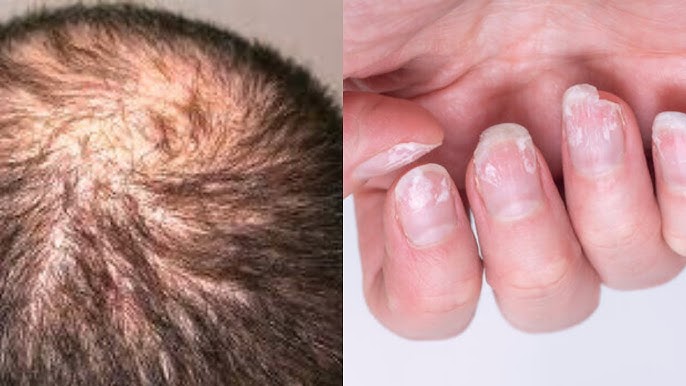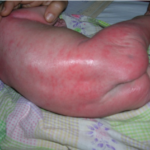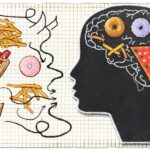Biotin deficiency, also known as vitamin B7 deficiency, is a rare nutritional disorder resulting from insufficient levels of biotin in the body. Biotin is a water-soluble B-vitamin that plays a crucial role in energy metabolism, fatty acid synthesis, and maintaining healthy skin, hair, and nails. Despite its rarity, biotin deficiency can lead to significant health issues if left untreated.

Causes of Biotin Deficiency
Several factors can contribute to biotin deficiency, including:
- Dietary Insufficiency
- Consuming a diet low in biotin-rich foods like eggs, nuts, seeds, and leafy greens can result in deficiency.
- Genetic Disorders
- Biotinidase deficiency, a rare inherited disorder, impairs the body’s ability to recycle biotin, leading to severe deficiency.
- Chronic Alcohol Consumption
- Excessive alcohol intake can interfere with biotin absorption and utilization.
- Certain Medications
- Long-term use of anticonvulsants and antibiotics can disrupt gut microbiota and reduce biotin levels.
- Pregnancy
- Increased biotin demands during pregnancy may cause mild deficiency in some women.
- Gastrointestinal Disorders
- Conditions like Crohn’s disease and ulcerative colitis can impair nutrient absorption, including biotin.
Symptoms
Recognizing the signs of biotin deficiency is essential for early intervention. Common symptoms include:
- Skin Issues: Dry, scaly skin, dermatitis, and rashes around the eyes, nose, and mouth.
- Hair Problems: Thinning hair, hair loss, and brittle hair.
- Neurological Symptoms: Depression, lethargy, hallucinations, and peripheral neuropathy.
- Muscle Pain and Weakness: General fatigue and muscle cramps.
- Other Symptoms: Conjunctivitis, impaired immune function, and developmental delays in infants.
Risk Factors for Biotin Deficiency
Certain populations are more prone to biotin deficiency, such as:
- Pregnant women
- People with genetic disorders affecting biotin metabolism
- Individuals undergoing prolonged antibiotic or anticonvulsant therapy
- Those with chronic gastrointestinal conditions
- Alcoholics
Diagnosing Biotin Deficiency
Diagnosis typically involves a combination of:
- Clinical Evaluation: Identifying characteristic symptoms and medical history.
- Laboratory Tests: Measuring blood and urine biotin levels.
- Genetic Testing: Identifying mutations in the biotinidase gene for suspected inherited disorders.
Treating and Preventing
1. Dietary Sources of Biotin
Incorporating biotin-rich foods into your diet can prevent deficiency. Key sources include:
- Eggs (cooked)
- Nuts and seeds (almonds, sunflower seeds)
- Organ meats (liver and kidney)
- Leafy greens (spinach, kale)
- Dairy products
- Whole grains
2. Biotin Supplements
For individuals with moderate to severe deficiency, biotin supplements are often prescribed. These are available in various forms, such as capsules, tablets, and powders. Consult a healthcare provider for appropriate dosage.
3. Address Underlying Conditions
Treating gastrointestinal disorders or modifying medications that interfere with biotin absorption is crucial for preventing recurrence.
Though rare, can significantly impact health and quality of life. Recognizing its causes, symptoms, and risk factors is essential for timely diagnosis and effective management. A balanced diet, appropriate supplementation, and addressing underlying medical conditions are key to preventing and treating this condition.

